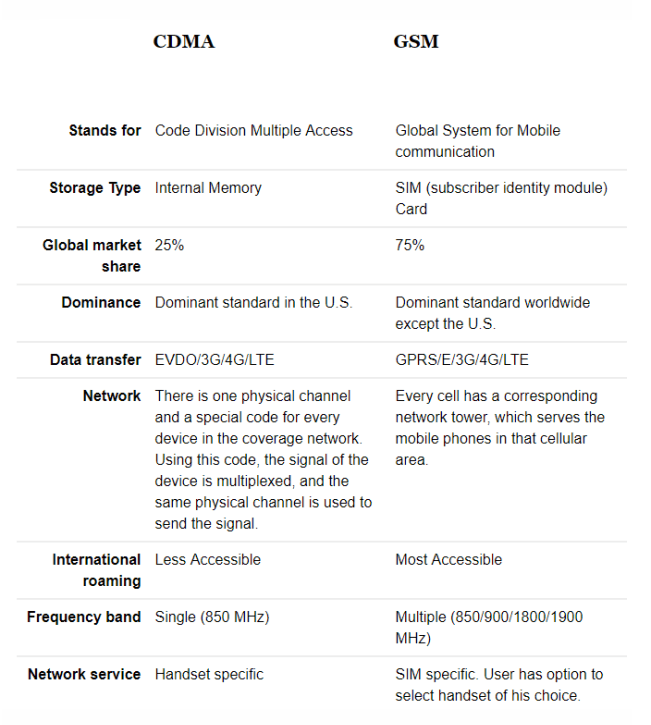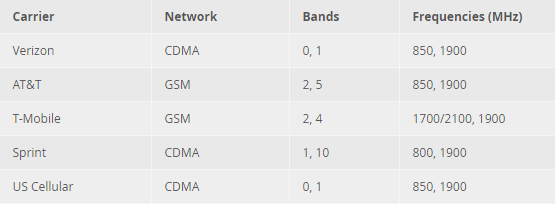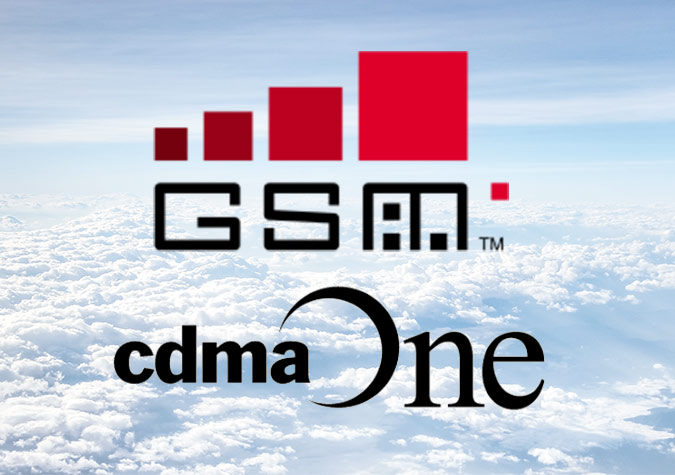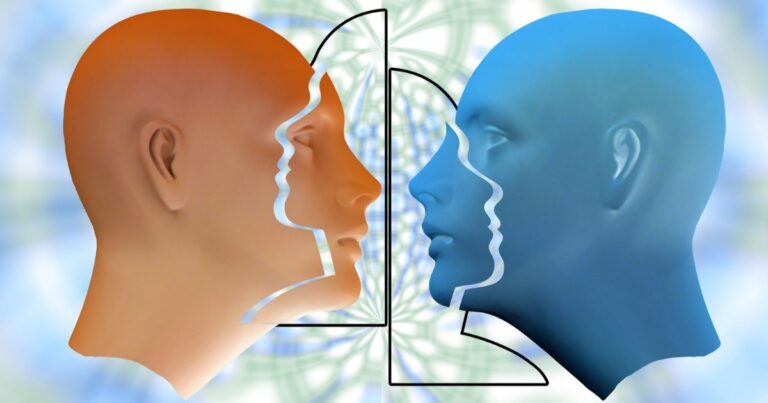GSM (Global System for Mobiles) and CDMA (Code Division Multiple Access) are quite different from each other. However, the way you use each of these is pretty much the same. We will try to explain the differences between these two systems.

GSM is simpler than CDMA. The major difference between these two is that CDMA is actually a technology, while GSM is actually a standard. However, GSM has also gotten certain status as a technology. Let us learn more about each of these.
GSM is also known as cellular technology. This is why we call mobile phones “cell phones”. Each cell is covered by a network tower, serving the phones within the specific cellular area.
In the US, Sprint, Verizon and US Cellular use CDMA. AT&T and T-Mobile use GSM.

CDMA is used by various types of devices. This technology is complex. Here we have a physical channel, and there is a specific code for each device within the network. The devices’ signals are multiplexed. This one channel will be used for sending the signal.
Frequency

US Frequency bands
GSM: 850MHz, 1900MHz
CDMA: 850MHz, 1700MHz, 1900MHz
Audio Sampling/Bitrate
GSM: 8kHz @ 12.2kbps
CDMA: 8kHz @ 8.55kbps
User ID systems
GSM: SIM
CDMA: MEID, U-SIM
International Roaming with GSM and CDMA:
When international business trips are a problem, GSM is ahead in the race for the “Most Accessible” title. Since GSM is used in more than 74% of markets worldwide, users of tri-band or quad-band phones can travel to Europe, India and most of Asia and still use their cell phones. However, CDMA does not offer multiband capability and, therefore, can not easily use it in several countries. However, certain phones such as the iPhone 5 now have quad-band integrated GSM so they can be used overseas with special call plans from operators.
Now, what are other differences between these two? The first major difference is in the call quality. CDMA seems to provide much better quality. There are no echoes, distortions, call droppings, etc. GSM, however, can show certain errors occasionally.
GSM users are able to change carries anytime they want, but this is not the case with CDMA.
Network Quality:
Now, what about the network? Well, it seems that both of these are improving the network quality, so it is hard to discuss the quality of the network of any of these two technologies.
GSM has one great advantage compared to CDMA. Any GSM device can be used for calling a special number, for emergency (112). However, CDMA doesn’t have this option, due to some limitations.
GSM has longer battery life.
Network coverage:
Network coverage is quite good in both technologies. You can find these anywhere. Of course, the providers are trying to get a bigger share in the network coverage, but this only leads to constant improvements in both GSM and CDMA.
As you can see, both GSM and CDMA have good and bad sides. GSM is limited in several ways, especially when it comes to calling quality, but it also has certain advantages. CDMA is not very simple to implement. However, it has its advantages and these are getting more numerous day by day. Technology is getting more powerful all the time, so both of these are being improved every day.
GSM Mobile Phone Tracking System:
Mobile communication has had a huge impact on the modern-day industry. GSM and CDMA technologies have unleashed mobile communication worldwide, and the technological competition between GSM vs CDMA has resulted in the improvement of services for the user.





